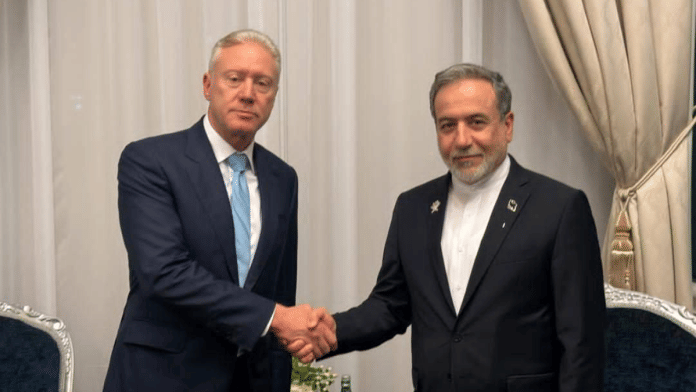New Delhi: Days after Israel killed a senior commander of the Hezbollah in southern Beirut, Iran and Lebanon have now engaged in a war of words over the future of the Lebanese group. Lebanese Foreign Affairs Minister Youssef Raggi took to social media platform X to call out Iran’s ‘interference’ in Lebanon’s domestic matters.
“Dear Iranian Foreign Minister @araghchi [Syed Abbas Araghchi], I genuinely wanted to believe what you said that Iran does not interfere in Lebanon’s internal affairs, until your Supreme Leader’s advisor Ali Akbar Welayati came out today to guide us on what is truly important in Lebanon and warned us of the consequences of disarming Hezbollah,” Raggi, said in a X post tagging Iran’s foreign affairs minister.
“Here, I want to clarify the following: What is more important to us than water and bread is our sovereignty, our freedom, and the independence of our internal decision-making, free from ideological slogans and transborder regional agendas that have devastated our country and continue to drag us further into ruin,” added Raggi:
Dear Iranian Foreign Minister @araghchi, I genuinely wanted to believe what you said that Iran does not interfere in Lebanon’s internal affairs, until your Supreme Leader’s advisor Ali Akbar Welayati came out today to guide us on what is truly important in Lebanon and warned us…
— Youssef Raggi (@YoussefRaggi) November 26, 2025
Hezbollah, the Shi’ite movement with both a political and military wing in Lebanon, has long been funded and supported by Tehran. The group was founded during Israel’s occupation of southern Lebanon in 1982. The military wing was engaged in a conflict with Israel for around a year, between October 2023 and November 2024 after which a ceasefire was agreed to by the militia with Israel.
The conflict had disastrous consequences for both Hezbollah and Lebanon. Hassan Nasrallah, the founder and leader of the group, was killed during the conflict with Tel Aviv last year, while Israel’s attacks across southern Lebanon and Beirut weakened the militia and left around 1.2 million Lebanese displaced. The World Bank estimates that the conflict between Israel and Hezbollah left roughly $11 billion in damages to be footed by Beirut.
In August, Beirut, under US pressure, agreed to a plan to demilitarise Hezbollah. The plan would have the Lebanese Armed Forces (LAF) carry out the necessary actions to fully demilitarise the armed militia. However, Hezbollah has refused to demilitarise until Israel fully adheres to the ceasefire and withdraws from the southern regions of Lebanon.
Since the ceasefire began last year, the United Nations has estimated over 120 civilian deaths. The weakened militia now has limited options. Officials claim Israel crossed a “red line” with the latest strikes, which, according to media reports, have renewed fears of another war between Hezbollah and Israel.
Also read: Where peace lies in Middle East is anyone’s guess. Iran no longer lonely, Israel more pumped
Iranian interference
Senior Iranian officials have lately entered a fractious debate over the future of Hezbollah. In an interview with Tasnim News Agency, the semi-official news agency in Iran, Wednesday, Ali Akbar Velayati, a senior adviser to Iran’s Supreme Leader Ayatollah Ali Khamenei, said Hezbollah is “more essential than bread and water” for Lebanon.
Velayati called the disarmament of Hezbollah an action that could have “disastrous” consequences for Beirut and asserted that Tehran will “continue to support Hezbollah and the resistance front.”
“Considering the extent of the Zionist regime’s [Israel] appetite for killing and plundering the other territories, the existence of Hezbollah is today more essential for Lebanon than bread and water,” added Velayati in the interview to Tasnim.
These latest comments from a Velayati set the tone between Beirut and Tehran. The Iranian Foreign Minister Araghchi has denied any interference in Lebanese affairs by Tehran.
“My dear friend, Lebanese Foreign Minister Youssef Rajji @YoussefRajji invited me in an interview with @MTVLebanon to engage in negotiations. We do not interfere in Lebanon’s internal affairs; however, we welcome any dialogue aimed at strengthening bilateral relations between Iran and Lebanon, with no need for a third country,” Araghchi said in a statement on X.
صديقي العزيز وزير الخارجية اللبناني يوسف رجّي @YoussefRajji دعاني في مقابلة مع @MTVLebanon إلى إجراء التفاوض.
نحن لا نتدخّل في الشؤون الداخلية للبنان؛ لكنّنا نرحّب بأي حوار بهدف تعزيز العلاقات الثنائية بين إيران ولبنان، ولا حاجة لبلدٍ ثالث. أدعو زميلي يوسف لزيارة طهران، وأنا… pic.twitter.com/gD8pqbmkab
— Seyed Abbas Araghchi (@araghchi) November 21, 2025
“I invite my colleague Youssef to visit Tehran, and I am also ready to visit Beirut with great pleasure if I receive an official invitation to that effect,” he added.
For Tehran, Hezbollah remains an integral part of its larger “Axis of Resistance” strategy to contain Israel in the region. Tel Aviv has successfully weakened the armed militia in Lebanon, degraded Hamas’ capabilities in the Gaza Strip, while the Houthis in Yemen remain active at the southern tip of the Arabian Peninsula.
(Edited by Sampurna Panigrahi)
Also read: Proxy war makes perfect sense for Israel. Tel Aviv to weaken Tehran’s financial networks now






